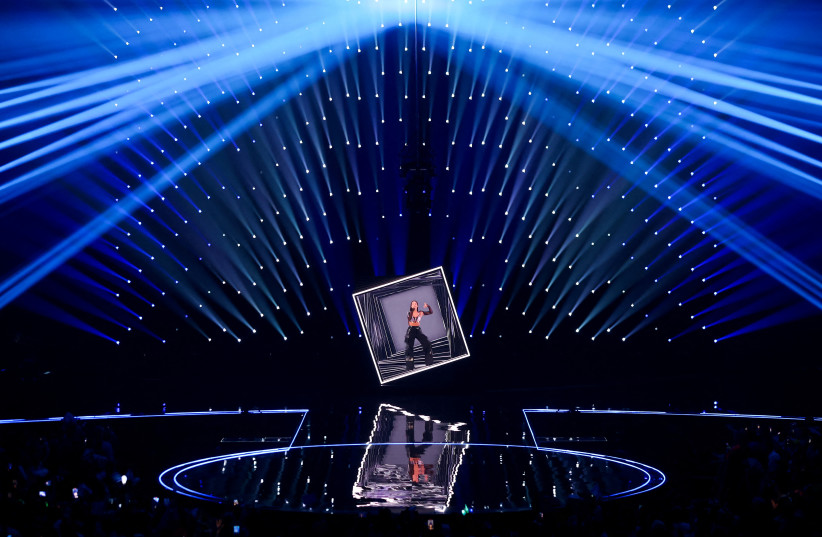After a long period in which the Israeli Eurovision song "Hurricane" was in ninth place in the betting charts for winning Eurovision, the song rose to eighth place on Sunday.
There is a possibility that this increase on the betting tables was due to the outpouring of sympathy Israel received after it was attacked by Iranian missiles and drones late on Saturday evening.
An Instagram page that publishes content related to Eurovision published the 10 most streamed songs from the official Eurovision YouTube.
In first place, by a large margin, is the Dutch song with 18 million streams, the Swedish song with 4.5 million streams, and Eden Golan's "Hurricane" with 4.1 million streams.

Last week, the European Broadcasting Union (EBU), which is responsible for the production of the Eurovision Song Contest, published an announcement regarding Israel's participation in the contest in the context of the Gaza war.
In the announcement, they made it clear that the decision on candidates' participation in the competition is in the hands of the EBU alone and not in the hands of other contestants. They also expressed clear opposition to the abuse or harassment of contestants, on or off the network.
The message's publication may have been influenced by the threats directed at Israel's Eurovision representative Eden Golan or the terrorist attack in Moscow in March and the growing fear of terrorist threats at Eurovision.
In a statement they published on the networks, they wrote: "The EBU recognizes the strong emotions stirred by this year's Eurovision Song Contest and the intense debate sparked by the inclusion of an Israeli entry. We would like to stress that any decisions regarding participation are the responsibility of the EBU's governing bodies, not the individual artists."
"We are firmly against any form of abuse or harassment directed at participants, online or offline, and are committed to fostering a safe, respectful, and inclusive environment. We advocate for constructive dialogue and support for the artists, underlining the Contest's mission to be 'United By Music.'"
Excluding Israel
This month, the pre-Eurovision events began, in the context of which many artists from the participating countries will perform in Europe, some of whom do not hesitate to appear with red pins that call for a ceasefire but forget to wear the yellow ribbon that demands the return of all the hostages.
In the past, Israel also hosted similar mini-Eurovision events as part of "ISRAEL CALLING." This year, Israel is not hosting anyone and is not invited to be hosted anywhere.
The exclusion of Israel is manifested in part by the fact that the events surrounding Eurovision week in the Eurovision village asked DJs participating in the parties not to play Israeli Eurovision songs "for security reasons."
Earlier, the National Security Council published the travel warnings for Israelis abroad, which included a reference to Eurovision.
At the end of last month, representatives of nine countries that will participate in Eurovision published a joint announcement in which they referred to the war between Israel and Hamas in the Gaza Strip.
The representatives - from Ireland, Portugal, Switzerland, Norway, Great Britain, Denmark, San Marino, Lithuania, and Finland - called for an immediate ceasefire and the return of the hostages to Israel.
The petition was initiated by the British pop star Ollie Alexander, who represented Britain in the competition.
